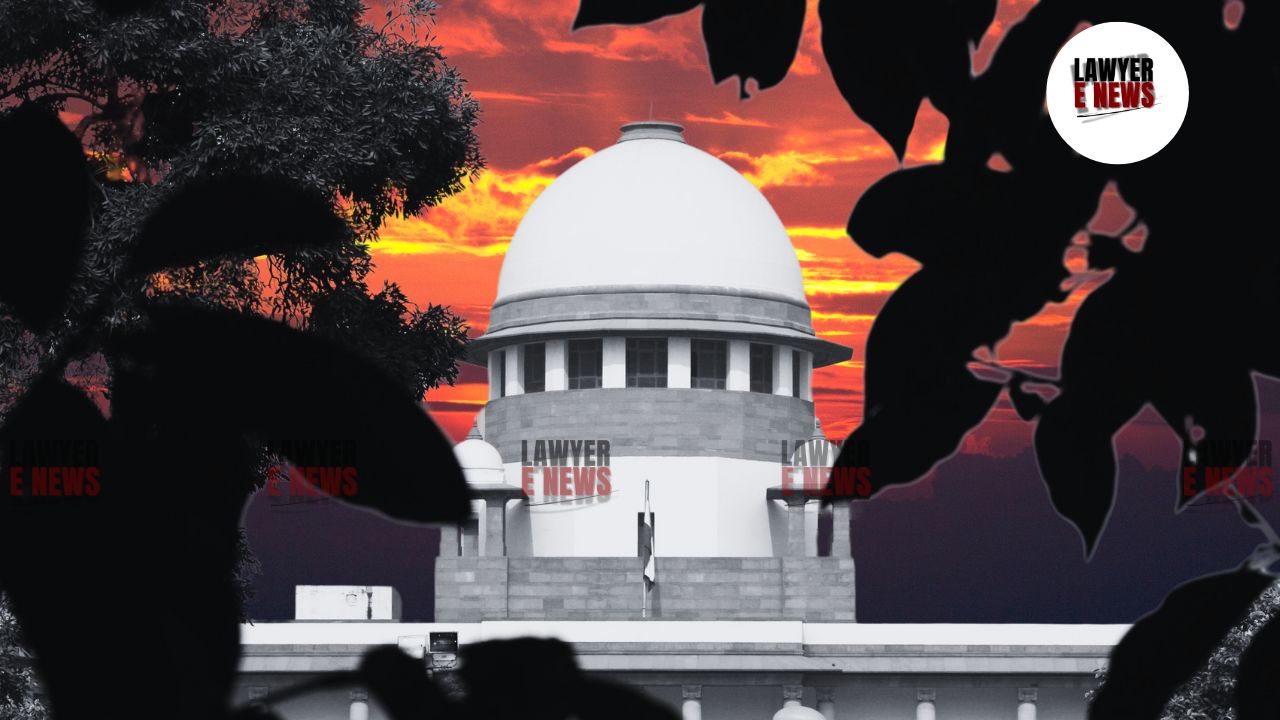-
by Admin
15 February 2026 5:01 PM



Builder Cannot Impose Excessive Penalties While Shielding Itself from Liability - Supreme Court has ruled that forfeiture of earnest money in builder-buyer agreements must be reasonable and not punitive, striking down a contractual clause that allowed the builder to forfeit 20% of the Basic Sale Price (BSP). The Court further held that when a buyer voluntarily cancels the booking due to declining market prices, no interest is payable on the refunded amount.
"A builder cannot impose disproportionate penalties on a buyer while limiting its own liability for delays. Such contracts, where one party holds overwhelming power over the other, cannot be enforced in their entirety," observed the Bench of Justices B.R. Gavai and S.V.N. Bhatti in Godrej Projects Development Limited v. Anil Karlekar & Others (2025).
While upholding the National Consumer Disputes Redressal Commission's (NCDRC) decision to cap forfeiture at 10% of the BSP, the Court ruled that awarding 6% interest on the refund was unjustified. The ruling reinforces the principles of contractual fairness and consumer protection in real estate transactions.
"One-Sided Clauses in Builder-Buyer Agreements Are Unfair and Unenforceable"
The case arose from a dispute where Godrej Projects Development Ltd. sought to forfeit 20% of the BSP after the buyer canceled the booking. The Court examined whether such a contractual forfeiture clause was fair or an unfair trade practice under consumer law.
"If a contract allows a builder to penalize the buyer heavily for cancellation while shielding itself from significant liability for delays, it cannot be considered fair or equitable," the Court held.
The judgment relied on Pioneer Urban Land and Infrastructure Ltd. v. Govindan Raghavan (2019) 5 SCC 725, where the Supreme Court had struck down similarly lopsided contracts that disproportionately benefited developers.
"Market Fluctuations Cannot Be a Ground for Interest on Refund"
The buyer in the present case canceled the booking due to falling property prices, rather than any delay or default by the builder. The Court observed that such cancellations are commercial decisions taken by buyers, and they cannot then demand interest on the refunded amount.
"A buyer who chooses to exit a transaction due to market fluctuations cannot claim interest on the refunded amount, as this would place an unfair financial burden on the builder," the Court noted.
Accordingly, the NCDRC’s award of 6% interest was set aside. The Court emphasized that interest is payable only when a builder defaults, not when a buyer voluntarily withdraws from the agreement.
"Earnest Money Cannot Be a Backdoor Penalty: Supreme Court Reiterates Reasonableness Test"
Applying Maula Bux v. Union of India (1969) 2 SCC 554, the Court reiterated that earnest money can be forfeited only to a reasonable extent and that any excessive forfeiture amounts to a penalty, which is impermissible under Section 74 of the Indian Contract Act, 1872.
"Forfeiture of earnest money under a contract is permissible only if the amount is reasonable. Any excessive deduction amounts to a penalty and is unenforceable," the Court clarified.
In previous cases, NCDRC has consistently ruled that 10% of BSP is a reasonable forfeiture amount, and the Supreme Court found no reason to interfere with this established standard.
"Builder Must Refund the Excess Amount, No Justification for Interest Awarded by NCDRC"
The Supreme Court directed Godrej Projects Development Ltd. to refund the balance amount of ₹12,02,955/- to the buyer within six weeks, stating that the company was entitled to deduct only 10% of BSP (₹17,08,140/-) as forfeiture.
However, the Court overturned the NCDRC’s direction to pay 6% interest on the refunded sum, stating:
"When a buyer walks away from a deal due to falling market prices, awarding interest on the refund would amount to giving them an unfair advantage. Interest is justified only when a developer defaults, not when a buyer exits due to commercial reasons."
With this ruling, the Court has ensured a fair balance between contractual obligations and consumer protection, preventing builders from imposing excessive penalties while also recognizing that voluntary cancellations should not lead to unjustified financial burdens on developers.
Date of Decision: February 3, 2025
